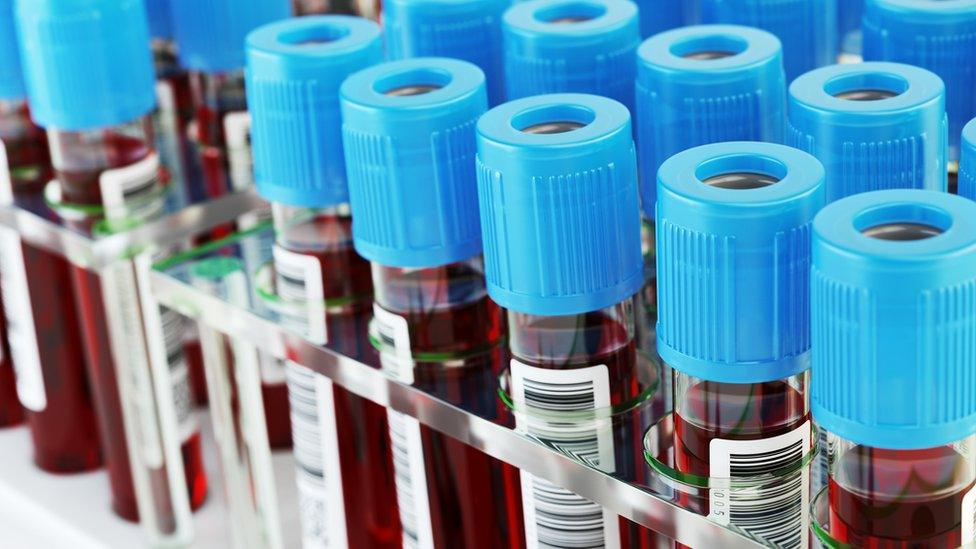Gay blood donor rules 'irrelevant', says campaigner
- Published
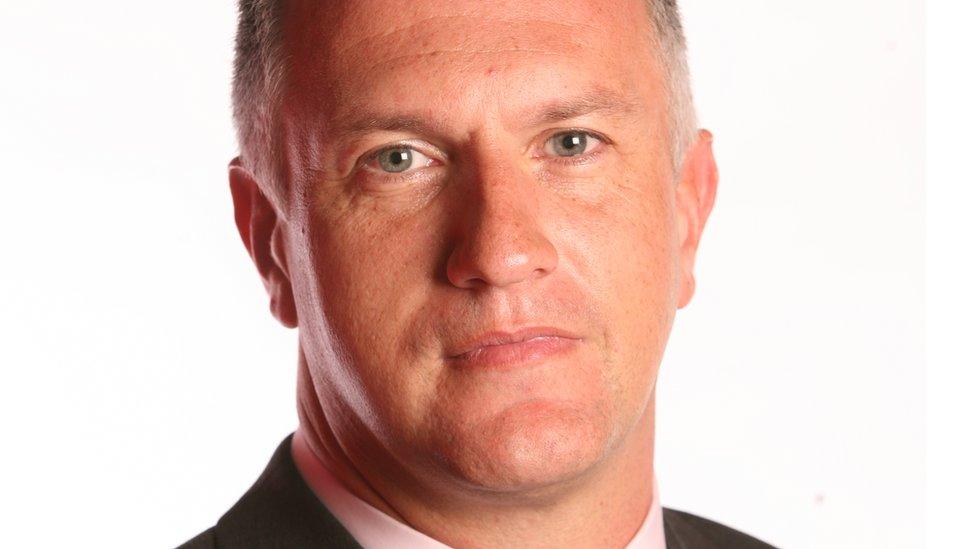
Ian Boulton says blood donation rules exclude gay men
A campaigner says current rules on blood donations from gay men are "irrelevant".
Currently men who have had sex with other men cannot give blood for three months.
Ian Boulton, chair of the South Gloucestershire LGBT+ Equality Network, says the rule is wrong when male blood is desperately needed.
The NHS said it was looking into ways of allowing more people to donate.
A blanket ban on donations from sexually active gay men was introduced in 1985.
The rules were relaxed in 2011 to allow donations after 12 months of sexual abstinence.
In 2017 the abstinence period was shortened to three months but Mr Boulton, who used to donate regularly, says that still prevents vital donations.
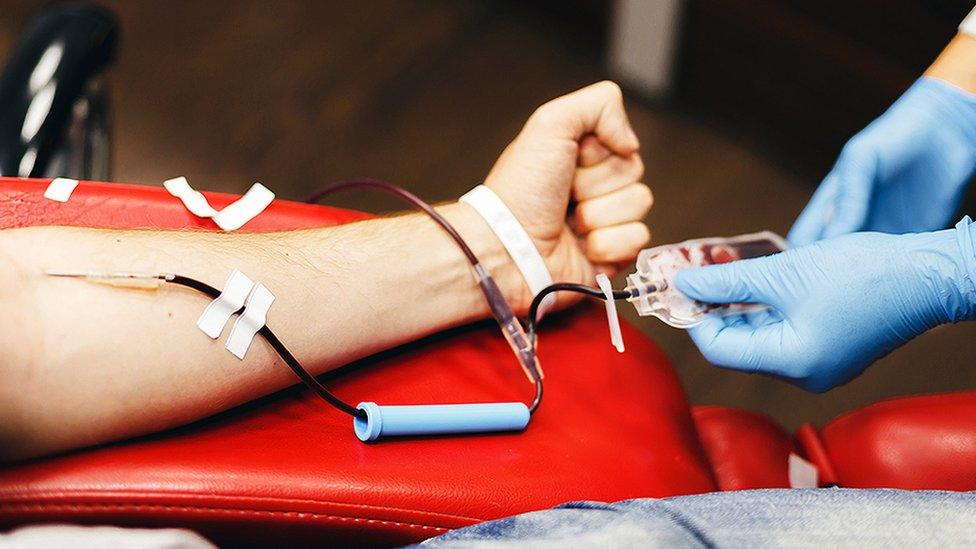
There are restrictions on gay men who want to donate blood
"When you hear they're putting out a call to arms for people to give blood, particularly men, and you know that a significant minority of the population are excluded, I just think it's a wasted resource," he said.
"I think that most people don't even realise that the blood ban is still there.
"It seems irrelevant when all blood products are screened anyway.
"The only thing I can think of is that it's a throwback to an earlier age."
NHS Blood and Transplant said the rules were based on Department of Health advice, but that a steering group had been set up to work with LGBT+ groups to explore a more individual approach to giving blood.
"The group is using an evidence-based approach to explore if a more individualised blood donation risk assessment can be safely and practically introduced," said a spokesperson.
"We want to give as many people as possible the opportunity to donate whilst continuing to ensure the safety of patients remains our number one priority."
- Published10 June 2019
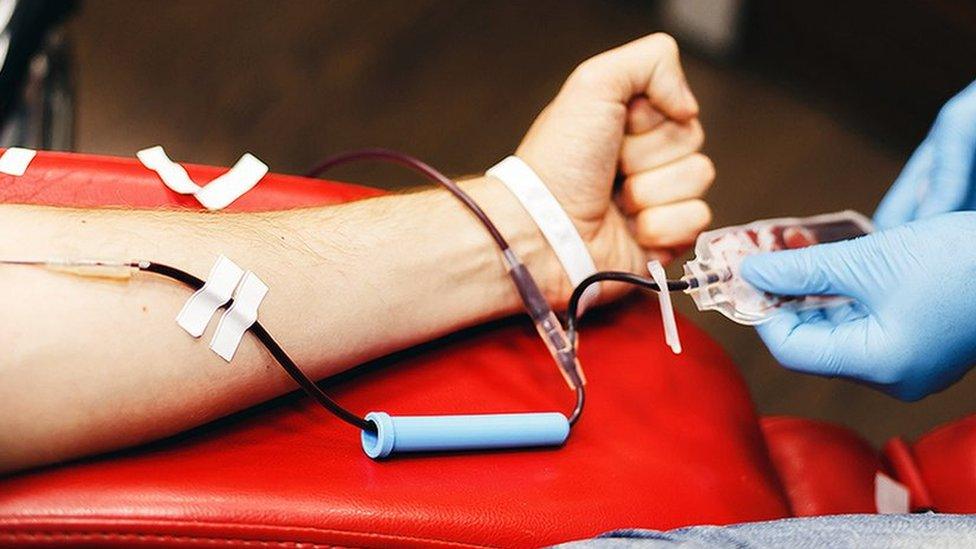
- Published12 October 2015
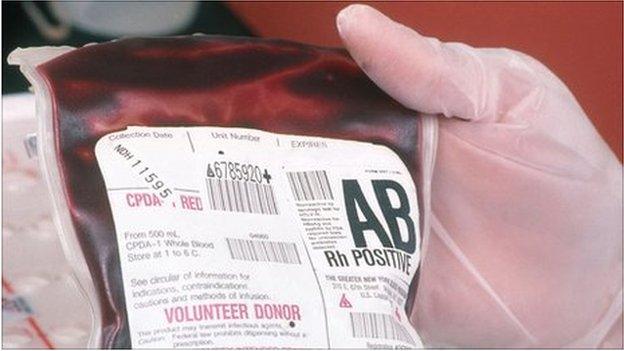
- Published22 December 2015
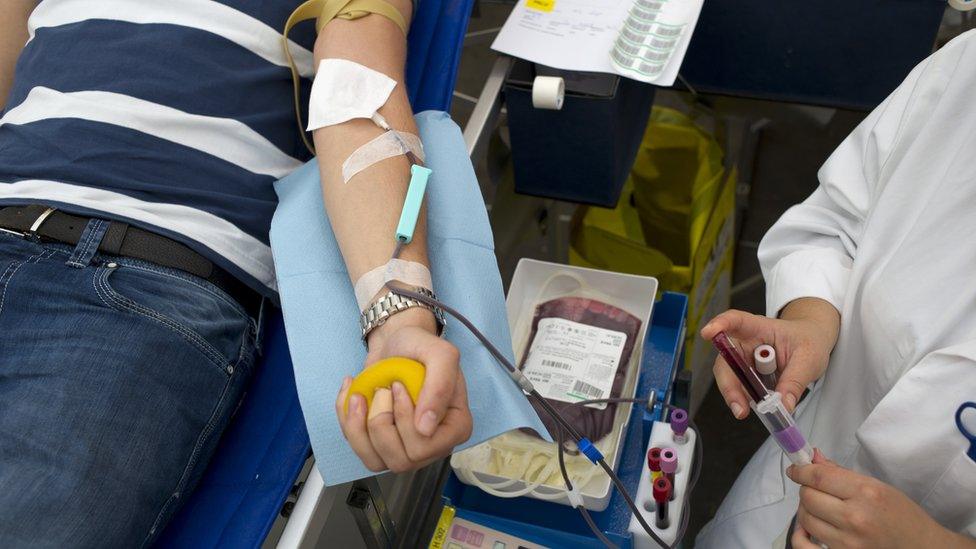
- Published2 August 2017
